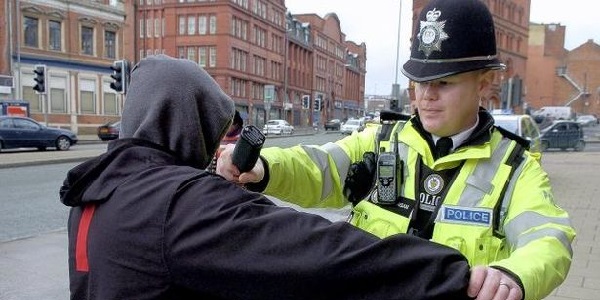New training seeks to remove bias from stop and search
Training and guidance on stop and search will be offered to officers across England and Wales for the first time ever with the launch of new College of Policing standards.
Training and guidance on stop and search will be offered to officers across England and Wales for the first time ever with the launch of new College of Policing standards.
The Authorised Professional Practice, published on Thursday (October 27), aims to help officers recognise and challenge unconscious bias in their decisions.
The standards also seek to improve officers understanding of the law, how to decide when stop and search powers should be used, and how to handle encounters.
The announcement comes in the wake of scandals in which forces were accused of over-using the power and discriminating against minorities.
College stop and search lead Garth Stinson said: This is the first time since stop and search powers were introduced in 1984 that officers have been set national standards to support them and ensure it is used consistently.
We know that stop and search can be intrusive so our evidence-based approach means officers will be given support to use their powers fairly, legally, professionally and in a transparent way.
We want officers to feel confident in their use of stop and search to use it more effectively in tackling crime and increase trust in its use.
Thirteen forces were re-admitted to the Best Use of Stop and Search (BUSS) scheme in September after being banned for poor performance in February.
BUSS was set up in 2014 and requires forces to demonstrate to the public that they are using stop and search powers fairly and effectively.
All 43 English and Welsh forces signed up to it, including British Transport Police, but 13 were found to be failing to meet three or more of the schemes requirements.
One of the main concerns raised in the review was that forces are using the powers disproportionately with black and minority ethnic (BME) people.
Her Majestys Inspectorate of Constabulary found that BME people are four times as likely to be stopped than white people, even though most cases detect no criminality.
HM Inspector Mike Cunningham described these figures as eye-watering, and called on chief constables to do more to understand the issues in their areas.
The college hopes its training and guidance will start to address these figures by supporting officers in demonstrating clear, objective and reasonable grounds before conducting searches.
It also believes the standards will help officers account for their decisions and treat the public more fairly.
The training will require police constables and sergeants to complete an online training module and test, and take part in a two-day practical classroom session.
Sergeants will be required to undertake a further one-day course on supervising searches conducted by their officers.
A trial has already found that officers who have received training are far less likely to use racial or ethnic stereotypes when searching members of the public.
Participants also demonstrated a greater knowledge of the law and were more likely to say they would act in line with standards.
In total, 83 per cent of the trained officers rated the pilot training as good or excellent.
Rebecca Hilsenrath, Chief Executive Officer at the Equality and Human Rights Commission, said: Stop and search must be lawful, non-arbitrary, non-discriminatory and based on reasonable suspicion.
This is why we commissioned the College of Policing to develop a comprehensive stop and search training programme to help ensure officers meet these obligations.
We worked closely with the college to develop and design the training to help police officers understand the importance of applying the rules fairly when stopping members of the public.
Doing so is vital in building and maintaining trust between the police and the communities they serve, and increasing public confidence in the police.
Home Affairs Select Committee chair, Yvette Cooper, said: These latest figures raise important questions for the police and the Home Office.
When ministers launched a new scheme to improve stop and search in 2014, part of


